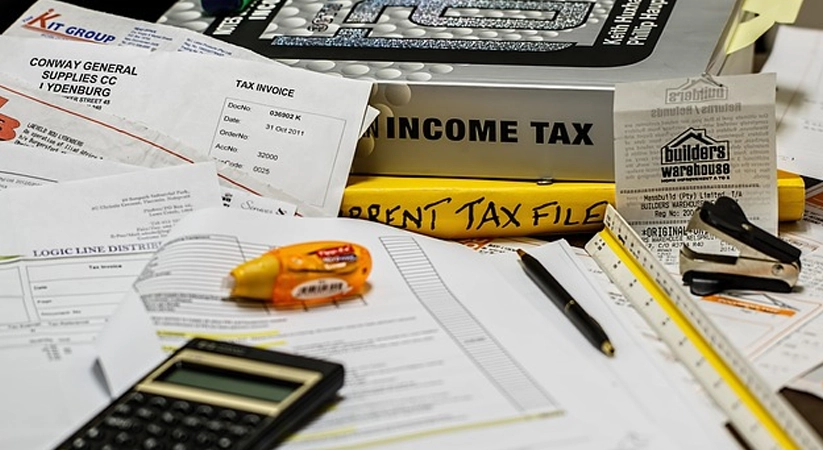Massachusetts Tax ID (EIN) Number & Business Registration
Published:Massachusetts is very welcoming to entrepreneurs and small businesses. The Commonwealth is home to many small firms, with 86 percent of its businesses having 20 employees or fewer, and 75 percent of its businesses having 10 employees or fewer. On top of that, firms with 20 employees or fewer account for the creation of 20 percent of the new jobs in the state. Major metropolitan areas around Boston, Worcester, Salem, and Springfield draw thousands of new entrepreneurs every year. If starting a business in Massachusetts is your dream, you should know there are some important legal requirements and formalities to pursue before you can start making money. Fortunately, the process to establish your business isn’t as complicated as it first appears.
Steps to Obtain a Massachusetts Tax ID Number & Business Registration:
- Legal Formation of your Massachusetts Business
- Obtain your Federal Tax ID (EIN) Number
- Massachusetts State Tax ID Number
- Massachusetts Licenses & Permits
Apply for your Tax ID (EIN) Number in Massachusetts
Apply for a Tax ID (EIN) Number in Massachusetts & Obtain your Tax ID in 1 Hour or less.
Legal Formation of your Massachusetts Business
Ultimately, there are four main choices for Massachusetts entrepreneurs: sole proprietorships, partnerships, limited liability companies (LLCs) and corporations. In terms of simplicity, you can’t get easier than a sole proprietorship or partnership—they’re practically the same, except partnerships involve two or more members and must have a partnership agreement in place. LLCs are a little more complicated, and corporations are the most complex; they’re subject to far more rules, laws, and restrictions because they have the power to issue public shares.
Most entrepreneurs prioritize taxes as a considering factor. In LLCs, sole proprietorships and partnerships, the process is simple; you’ll pay taxes as an individual on any money you make with the business. C and S Corporations are treated as separate legal entities, so their taxes are a bit more complicated. Corporations are responsible for a corporate excise tax at the state level, and are taxed on eligible income at the federal level as well. The Massachusetts state-level corporate excise tax is complex, but you can usually count on it being a combination of 8 percent of eligible Massachusetts income and $2.60 per $1,000 of either taxable Massachusetts tangible property or taxable net worth.
You should also consider the liability protection offered by each business type. Sole proprietorships and partnerships offer practically no liability protection. In LLCs, you’ll get protection from most liabilities, debts, and obligations. And in a Corporation, you’ll have even more liability shielding—one of the tradeoffs to paying (typically) higher taxes with this business structure.
Obtain your Federal Tax ID (EIN) Number
Before you get any further in the process, you’ll almost certainly need a federal Tax ID Number. This unique identifier for your business, sometimes called an employer identification number (EIN), will register your business with the federal government, which is necessary for tax planning purposes. You’ll also need an EIN for hiring employees—as the name suggests—and for opening new lines of business credit or new bank accounts. It’s also a handy substitute for your personal social security number when filling out some forms of business paperwork.
If you want to get your business started as quickly and efficiently as possible, try using the online federal Tax ID Number obtainment service. With just a few pieces of information about you and your business, we can get you registered and set up with an EIN within 1 hour or less.
Obtain your Tax ID (EIN) Number in Massachusetts
Apply for a Tax ID (EIN) Number in Massachusetts & Obtain your Tax ID in 1 Hour or less.
Massachusetts State Tax ID Number
If you plan on hiring employees in Massachusetts, or if you’re selling taxable goods and services in the state, you’ll also need a Massachusetts State Tax ID Number. This ID number is used for a variety of functions, including registering your business for state-level taxes. It also serves as a unique identifier for your business, which is important when completing applications for any state-level function, applying for business licenses and some types of business partnerships.
Massachusetts Licenses And Permits
Many businesses must have licensure, or special permits to operate in the state of Massachusetts, such as organizations in healthcare, construction, or transportation. You can check your specific industry requirements on the Mass.gov website, since there are thousands of potential permits and certifications you may need to be aware of.
In addition to state-level licensing, you may be required to have specific licenses and permits to operate within specific city limits. These permits vary by location, so there’s no comprehensive source that can tell you everything. The most efficient way to learn whether your business needs permits like these is to talk to an expert at your local Chamber of Commerce.
Related Tax ID (EIN) Number Articles:
Estate Tax ID (EIN) Number Obtainment Guide
How to get an EIN Number for an LLC
Maryland Tax ID (EIN) Number & Business Registration
Ohio Tax ID (EIN) Number & Business Registration
Tennessee Tax ID (EIN) Number & Business Registration
Arkansas Tax ID (EIN) Number & Business Registration



